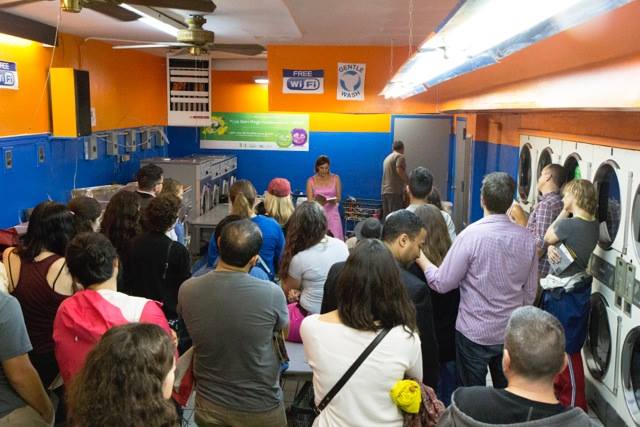As I was about to board the flight from New York to London on July 17, I received a call from the hospital.
“Your mum has deteriorated. How long will it take you to get here?”
“The flight takes seven hours. Will she still be there when I arrive?”
“I can’t say that, my dear. Do you want to speak to her?”
On the other end of the line I heard the sound of someone gasping for breath.
“I love you,” I said, because in the end, what else is there to say.
Lit Crawl Dirty Laundry Reading
For a moment, I wondered whether it had been a good idea to fly back to New York for the weekend after a similarly distressing call the previous week. It seemed important to me that I had two book readings and I even stayed longer to attend Creative Writing classes at City College on Tuesday.
But when I arrived the next morning, my mother looked positively cheerful, and asked if I could bring her coffee and a warm croissant. She asked me to read her Simone De Beauvoir’s A Very Easy Death.
“I wonder if we’ll get to the end before the end,” my mother pondered.
Skipping the parts that made me too choked up, we reached the end in two days.
“How many stars would you give it out of 5?” I asked.
“Five,” my mother whispered in a little girl voice.
After that, my mother wanted to hear How Do I Love Thee by Elizabeth Barrett Browning, and her favorite poem, La Belle Dame Sans Merci by Keats. We went on to read Ordinary Dogs and From Baghdad, With Love. Sometimes animals are easier to understand than people.
My mother and I had gone past many endings, and clearly it was not yet the end. So I took a break in a nearby shopping center and bought things I normally wouldn’t look at: a skintight red dress and red rhinestone stilettos. I felt overwhelmed by the physicality of things: the colors, textures and shapes of our human landscape and the way we move around between things with some apparent plan, so temporary and so magical.




